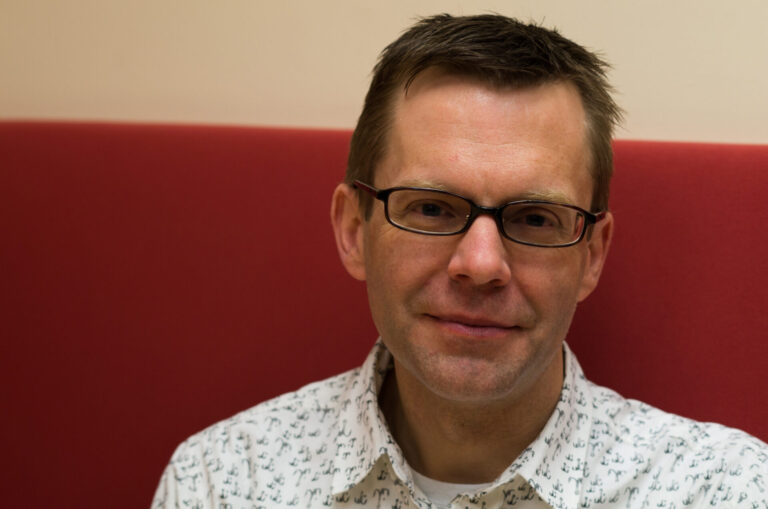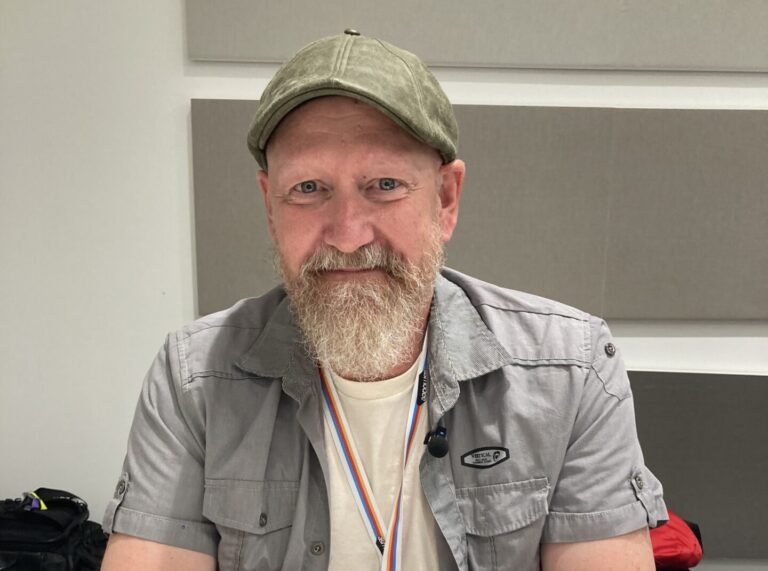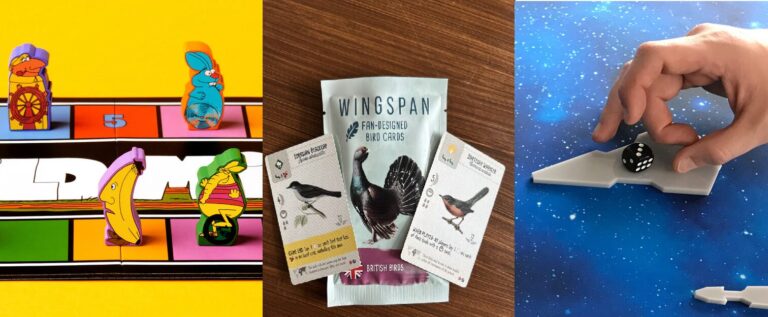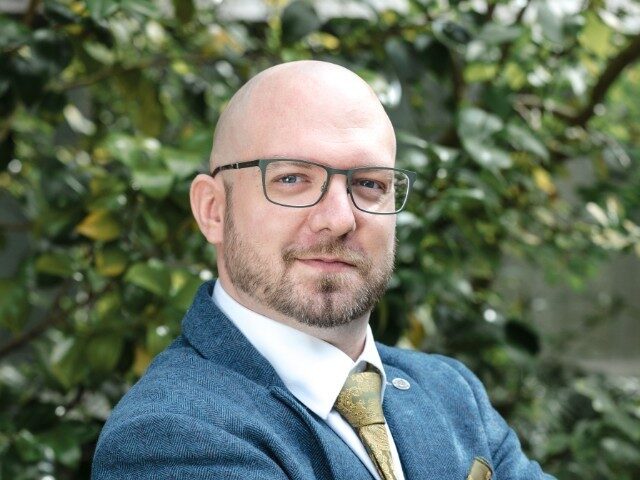
How All About Games Consulting created a one-stop shop for board game services [sponsored]
Launched in the depths of the Covid-19 pandemic, All About Games Consulting has swiftly grown from offering manufacturing and sales support to become a one-stop shop for board game business services. In this sponsored article, AAGC co-founder Cedric Delobelle explains how the company has quickly expanded to fill a gap in the industry, sets straight some assumptions about what a consultant actually does, and talks about why smart sales rather than pushy ones will always win out. Click here to find out more about what they can do for you!
You’re currently celebrating the third anniversary of AAGC – how have you seen the industry shift in that time, in terms of what your clients are asking for?
We launched the business when the world was in the depths of the COVID pandemic, so the industry landscape was already evolving to match the increased demand generated by everyone being trapped indoors! In a post-lockdown world the changes haven’t slowed down, but it is more transformative than evolutionary in a lot of ways – people are very risk adverse. Our initial focus was to support publishers in establishing better manufacturing pipelines and broadening their available sales channels but in the last three years, that focus has expanded in line with our partners needs. We noticed certain common trends among the studios we worked with, where they needed expertise in new areas such as crowdfunding marketing, international events and mass market establishment. This shift in focus has guided our steady, sustainable growth as a business, enabling us to expand the roster of services we provide to the point that we’ve really become a one stop shop for tabletop companies looking to grow their business.
What persuaded you there was a gap in the market to launch AAGC, and how is that thesis holding up three years later?
The concept of AAGC came from the framework of my previous business venture – Delobelle Corp – which I established shortly after parting ways with the Asmodee Group. My ambition at that point was to leverage my experience and skills to cultivate the international sales and localisation department of large publishers like Pegasus Spiele. This had proved that the concept that there was appetite for an elite, experienced service provider to support companies in the industry, but the inception of All About Games Consulting really came from a deeply personal and painful experience – the near loss of my wife and the tragic loss of our child.
This was of course a profoundly affecting moment for me that completely reshaped my perspective on life. I had always thrown myself headfirst into my work, aiming to make as much money as possible to give my family whatever lifestyle they wanted. But through this tragic event, I realised that money and the accumulation of wealth was not the paramount pursuit in life. This prompted me to make a commitment towards balance, making sure not to compromise on time with my family. Now, through AAGC I am able to work selectively with partners who resonate with this ethos, on projects that I believe in.
The journey over these three years has been incredible, even if it hasn’t always been easy! Despite challenges along the way, I am proud to say that our partnership focused approach has endured throughout an we take immense pride in the close, personal relationships we have nurtured with our partners along the way.
Launching a business into the teeth of Covid-19 must have been stressful. How did you negotiate those first months as a new operation – and did starting out while during a global lockdown have any positive side-effects?
There was a huge increase in consumer spending on board games during the COVID pandemic, which in turn brought plenty of opportunities for us to help companies gain a foothold in new markets. Establishing ourselves on the market was a much smoother process than we anticipated, but it also happened a lot more quickly than we anticipated. We hadn’t planned on hiring any employees beyond our founding members until at least year two of the business but after only six months of trading, it became clear that this was an overly cautious plan. I hired my first employee – Philip Hatch. What started as a second pair of hands to help me coordinate our partners sales and manufacturing needs has developed rapidly, and Philip has been a key part of helping me to grow the team and our service offering. He now acts as our Head of Events & Marketing, as well as being my number two in the business – now ten employees strong, with an additional support team of external consultants in their own highly specialized fields.
Thanks to feedback from our partners, we know that a huge part of that growth and success had come from our unique approach to business. We managed to differentiate ourselves from the competition by offering a selection of services that were critical to tabletop publishers looking to grow, but that were difficult to handle internally. Outsourcing these needs to AAGC was an easy decision for many publishers, thanks to our unconventional payment structure. We knew from the outset that we wanted to avoid the typical commission-on-sales model that is common for sales agencies and freelancers in our industry. Instead, we implemented a retainer-based system. We have never worked like an agency would, so it never made sense for us to have a charging structure like one. Instead of focusing on one area and chasing a commission at all costs, we make a commitment to our partners and act as an external extension of their team that is immersed in their product development process and able to align with their long-term objectives. They gain the benefit of our full team and their years of experience, for a cost far lower than what it would cost them to hire a dedicated employee in their own team- while also avoiding the overheads of training and recruitment.
You and co-founder Daniel Steel have huge experience working within the industry, including many years in senior roles at Asmodee. In what ways are you leveraging that experience in your new roles at AAGC?

For decades, Daniel Steel has been a hugely influential figure in the UK’s tabletop scene. I think it’s safe to say that the tabletop landscape would look completely different had he become a lawyer or banker instead of pursuing his passion! His company, Esdevium Games (now trading as Asmodee UK) started out as a hobby store that began to import products from the US, and grew to become one of the premier distributor of English language titles across Europe. Both before and after the Asmodee acquisition of Esdevium, I worked closely with Dan to push the bounds of what was possible with distribution of tabletop products. He has always been one to offer me guidance, both in my personal and professional life and that mentorship is something I value highly. He brings invaluable advice for the strategic development and acquisitions that we advise high profile partners on, as well as proving a valuable sounding board for the more ambitious projects that Philip and I come up with!
From my side, I was able to bring expertise in localization and distribution, as well as my extensive network of European publishers and distributors. Thanks to my proficiency in multiple languages, I’ve been able to expand this network and place AAGC onto a truly global scale. These have all been huge assets to the companies we represent and work with, allowing us to bring them into new markets internationally and see substantial growth that is sustainable in the long term. My goal is always to surpass the expectations we set for our partners- and in most cases we’ve been successful, helping them to identify and capitalize on opportunities, wherever they may arise.
Our substantial experience in the industry gives us a unique viewpoint on a lot of the challenges our partners face. Often, issues they see as insurmountable are problems that we have faced before, so we’re often able to guide the partner back onto the right path to make progress. Sometimes this can mean nurturing a new, strategic partnership for them, sometimes it means helping them secure funding or improve the profitability of their product lines. Whatever the situation, our starting point is always to look for a solution that gives the partner longevity. We don’t want to profit ourselves if it means our partners go out of business in the next three years- we want them to still be here significantly beyond that.
What do you think most people in the industry believe a consultant like AAGC does – and what would they be surprised to hear that you offer?
The factor that surprises prospective partners the most is the unmatched range of services we offer, and the collaborative, hands-on approach to our work. There’s certainly other companies out there who offer some of the same services as AAGC does, but we have yet to find one who offers them all. It’s great for us, as we’re doing something unique for the industry, but it is also great for our partners as we’re able to look at the bigger picture for their business.
People are certainly surprised when they find out just how broad our offering is but that seems to come from the assumption that we are a hands-off advisory agency. The term ‘consulting’ often carries a negative connotation here, and leads people to believe that we are simply an external team that will be brough in to analyze a company and offer basic recommendations to enhance their operations or identify ways of maximizing the company’s financial health. That’s not accurate to what we offer at all. Not only do we identify areas for improvement, we also get involved directly and drive the implementation of these enhancements ourselves. On the surface, this hands-on approach would indicate that we have a lot more in common with a professional service provider than a traditional consulting model, but none of it would be possible without the strategic insights that we’re able to offer thanks to the decades of experience our team possesses.
Our partners call on us to improve a specific facet of their operations, often an area like sales, events, crowdfunding or recruitment. Usually it is an area that they prefer not to manage in-house due to bandwidth or headcount constraints. It’s not unusual for a medium sized publishers to be made up of individuals who started their business because they loved designing games, but after publishing a few titles that passion has been bogged down in the realities of day-to-day business administration. That’s another situation that we’re often called into- we handle the business side of generating sales, orchestrating events, or running their crowdfunding campaigns so that they can focus on the fun part, the part they got into the industry for- creating great games.
How soon should a business contact you when they have plans to crowdfund or manufacture a game? And do you provide services that will help them through the full process?
When it comes to crowdfunding, a business can never get in touch too early, but having said that, we start at all sorts of different stages within a project lifecycle. Before we make a proposal or draft a contract our team will meet multiple times with prospective partners, asking key questions and looking at the data on a project to make sure that we know where we can add value, and that we have a clearly defined scope of work. Sometimes this means we come on board when the game only exists as a prototype and playtesting is under way, sometimes it means a publisher has a finalized game and is ready to make a huge marketing push ahead of the crowdfunding campaign. Regardless, our aim is create a complete pre-marketing and launch strategy that prioritizes market penetration and successful funding, as well as looking at the long term product goals after the campaign or at retail. The service is designed to be a start-to-finish solution, managing the entire process for the partner, from influencer content and digital advertising through to grass roots social media marketing and community engagement. In fact, we have even had a partner who was so confident in how the project was going that he went on vacation during the campaign, happily leaving the project in our safe hands!
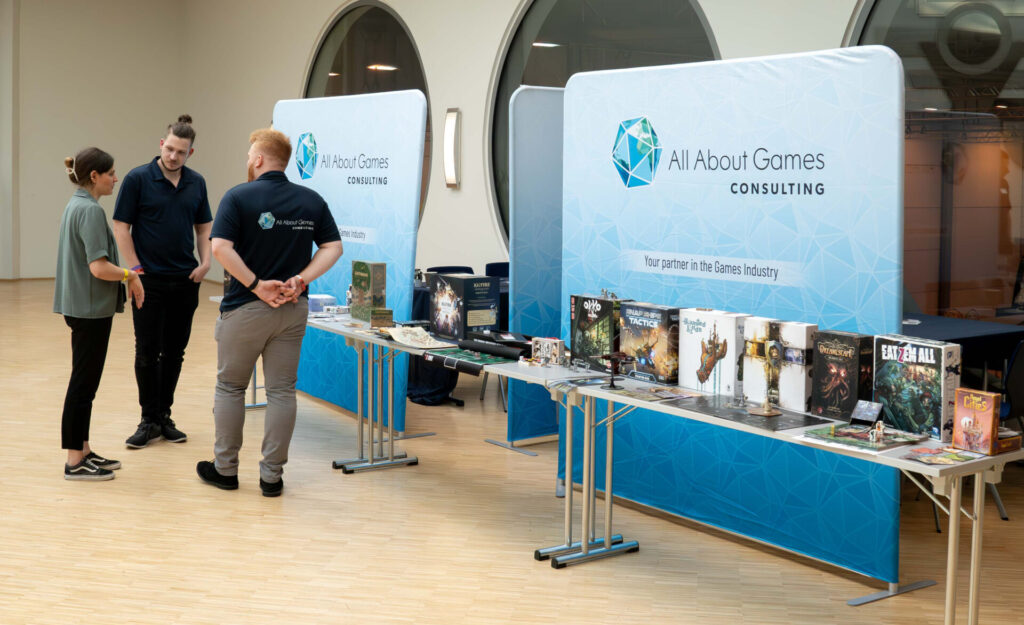
When it comes to manufacturing projects, our start point and work are just as varied. Sometimes we’re called on very late in the process as troubleshooters, using our knowledge of production processes or relationships with factories to find solutions for projects that have stalled or acting as a bridge between publisher and factory when communication has broken down. Often, publishers will have a product specification that has come in wildly overbudget when they’ve requested production quotes, and so they rely on us to identify what the challenges with their specification are and to find ways of bringing that price down. We’re normally able to improve quotes for publishers by advising on minor corrections to the specification or design that can be causing unintended price increases or material waste. We also monitor the price of raw materials and weigh this against the manufacturers margins which allows us to make sure that all parties are making a fair margin. Throughout the last three years this has been a huge help to publishers and manufacturers alike, as the fluctuations in raw material pricing have meant that people’s usual assumptions on what paper costs weren’t always correct. AAGC acting as a more objective third party, was able to ease friction in these cases.
It’s not always about haggling with factories to reduce the price at all costs though! Some publishers are willing to pay for quality, at which point the specification and materials used are just as important as the price per unit. We’ve also done some great work in championing eco-friendly and ethical manufacturing solutions, where factories like Ludo Fact and Fabryka Kart have been hugely accommodating and willing to experiment to find new methods of production that have less of an environmental impact.
I expect many people out there probably think hiring a consultant and service provider is only an option for the biggest companies in the industry – are they correct?
That’s a fairly common misconception – but in reality, bringing in a specialized firm like AAGC can be cost effective and safer for small and medium sized businesses than hiring an internal team. Our team can be deployed on a project as soon as a contract is signed, whereas an internal hire comes with the burden of payroll, employee benefits, training and onboarding time, as well as the lengthy recruitment process needed to find a professional with the right skills and network. Strategically sourcing support through AAGC gives immediate access to our own skills and network, which is something that has appealed to many distributors and publishers that we have worked with.
The stereotypical narrative around outsourcing is that it leads to a reduction in quality of work, missed opportunities, less personal contact with your business partners and stakeholders or reduced visibility on project progress. We address all of those concerns by bringing deals and opportunities that create long term partnerships and relentlessly pursuing them for our partners to find a deal that benefits all parties involved. To make sure that personal relationships remain intact, we act as the bridge between a publisher and their partners, making sure that they have full visibility on negotiations we undertake and offers we make. Our goal isn’t just to support their existing business relationships but to help them to forge new ones with like-minded individuals that are as passionate about their products as we are.
What would you say your largest business areas are, by demand and by revenue? And how do you see that shifting over the next couple of years?
Distribution and localization sales are always interesting for publishers, so our International Sales & Localisation service is consistently in high demand and is a key revenue stream for us. Lately though, we have seen a huge level of interest in our Event Management and Experiential Marketing offerings. We have been helping many US companies to attend European events, offering a turn-key solution where they can show up to a fully staffed and built booth. That’s a great solution for them as it means they don’t need to send a huge team to travel internationally. Instead, they can send one or two representatives over to meet with business partners while we handle the product promotion to end consumers and other interactions with attendees. Outside of large-scale events we’re also offering solutions for in-store demonstration programs, which are another great way of promoting to end consumers- especially given how social a medium boardgames are.
We’ve also recently expanded our services to include the facilitation of asset and company sales. While complex and requiring more of my own time, this is an area that I believe has vast potential- as well as being a good way to leverage my background in economics. It is early to say how significant a focus this will be however, so my current vision for the next couple of years is sustain our focus on sales, crowdfunding and event management as these are areas where our strengths and expertise continue to deliver the greatest value to our partners.
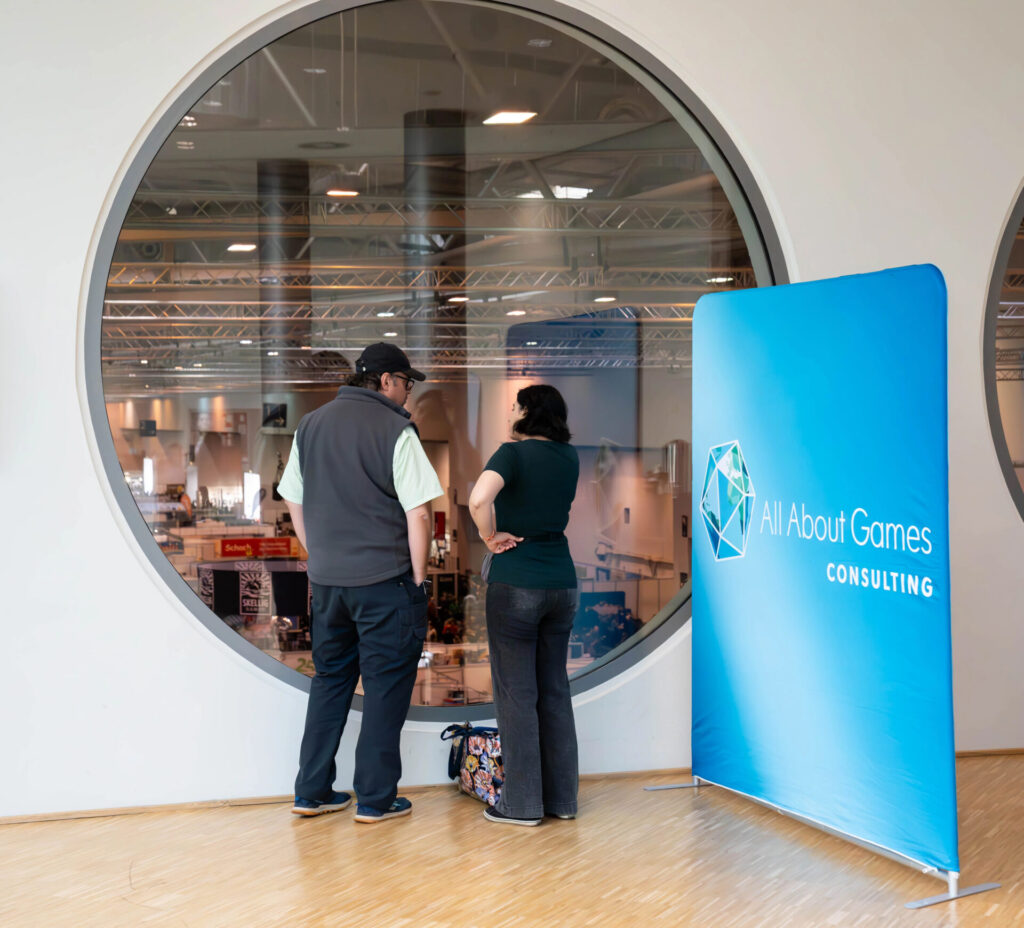
I saw you brought in fellow industry veteran Stephan Brissaud recently as a senior North America-focused business development executive. What plans do you have for expansion in the US and other geographies and why?
We already operate on an international scale for sales and manufacturing, but distribution in the USA is a unique ecosystem with a lot of intricacies to navigate. By bringing Stephan on board, I can rely on him to handle that market, thanks to his experience with Funko, Iello and Asmodee. The other benefit is that it gives me more time to focus on our localisation, mass market and key account channels. Longer term we’d love to work with big events stateside to bring our roster of European publishers to the shows out there in the same way that we bring a lot of US publishers to shows like UKGE and SPIEL.
Potential clients might be unsure of how you structure payments for your services – do you work on commission? I can see there might be a danger there of a consultant pushing for more products to hit the market than is right for the client?
I mentioned this in passing earlier, but as a company we’re opposed to commission structures, particularly when it comes to sales. It comes up in a lot of conversations when we onboard new partners, as it seems to be the norm for the industry. We’re not interested in making a quick buck, but rather in fostering a long-term partnership with our clients. That’s harder to achieve on a commission basis, as it inherently skews the judgement of the agent. Take sales as an example: let’s say a hypothetical agency had two potential deals for a publisher in a territory: one for 2,000 units and one for 3,000 units. On a commission model, they are always going to recommend the 3,000 unit deal, as it means the best benefit for them, but in the long term that partner might not be the best fit for the publisher. Perhaps the 3,000 units end up being sold to a deep discounter who devalues the publishers brand in that territory, or perhaps the 3,000 unit offer comes from a partner that can’t dedicate the same amount of marketing that the 2,000 unit offer could do.
In a nutshell, that is why we almost always work on a retainer model. It means that we’re always incentivized to look at the best partners, the best deal terms and the best representative of the publisher’s brand, not just the best short term revenue. That’s not to say that commission models are always a bad thing. For some smaller publishers, a commission structure like those offered by traditional sales agencies can make perfect sense as there is no upfront commitment, and it does not impact their cash flow. At the level that we operate though, in most cases a commission structure would feel predatory or opportunistic, and that’s not who we are.
Are there any areas of the business where it makes sense to work on a commission basis?
It’s only something we consider for our crowdfunding and recruitment services, as a retainer wouldn’t make sense in these cases. For example, when we fully manage a crowdfunding campaign and it’s associated marketing campaign then we’re often working with first time publishers and start-ups as well as larger publishers. In either case, a commission based on the performance of the campaign and the funding level reached makes the most sense, as it doesn’t impact their marketing budget in the crucial pre-marketing window. Crowdfunding contracts also tend to be a more intense amount of work for our team, in a shorter window of time than the 12-month agreements we have for sales and other services. Likewise, commission makes sense when we handle high level recruitment for a company or manage an acquisition- as these are the only ways it would make sense to charge for our time.
Finally, you’ll have seen huge changes in the industry across your long careers – what do you see as the biggest changes on the horizon, and how are you prepared to help companies deal with them?
The landscape of distribution is already changing and that doesn’t seem set to settle for some time. More and more publishers are considering supplying retail directly, and with the costs of running a store space increasing further and further the extra margin that this offers to retailers is a lifeline that many can’t ignore. Ultimately, the broader economic situation is a huge factor, with recessions looming for many territories. Historically, board games have been a stable category during in recession, but that doesn’t mean there won’t be a tightening of belts in some areas.
It isn’t all doom and gloom though. After all, there have been some huge releases and incredible new product lines in the last year alone, and ultimately we work in an industry that is about shared, social experiences. Time spent with friends and family playing a tabletop game is a refuge that transcends a lot of barriers and difficulties, so I am sure that I am not the only one who will always have a place for that in my heart and in my home.
Click here to find out more about what All About Games Consulting can do for your business




